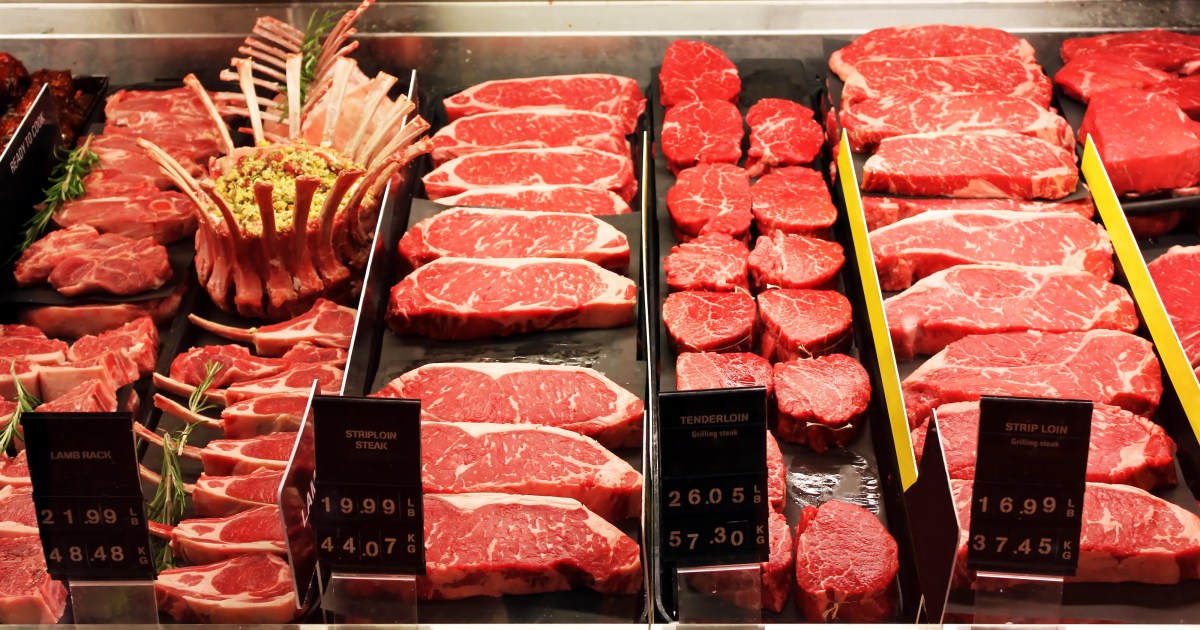Bigjay73
Well-known member
Fake meat sales are now plunging because of high prices and being too 'woke' for consumers — here's the one timeless takeaway for investors
Wokeness is turning off shoppers. Invest accordingly.
Follow along with the video below to see how to install our site as a web app on your home screen.
Note: This feature may not be available in some browsers.
Yeah, sales were awesome, then they weren't. Maybe folks decided they liked the real thing or nothing at all better than these products.Lack of customer base as well I would imagine
Initial curiosity probably drove early sales, price point brought them down to realityYeah, sales were awesome, then they weren't. Maybe folks decided they liked the real thing or nothing at all better than these products.
With baconAll I know is this thread makes me want a juicy beef burger for lunch

I agree. With all of the talk that we hear about how bad processed food is for us, I don’t know how fake meat could be healthy.I had read another article in the same vein. They said consumers were turned off by the product partially because of the long list of ingredients. Seemed like a good point. Hard to convince people to trade in “beef” or “chicken” for something with a long list of ingredients that you aren’t sure what they are.

Good read. Seems set to one view though they're focused with a new metric. Key portion that appears to get to the core of the article:In a similar light, research is coming out that unprocessed ( <--- important) meat is not as terrible as once believed. This article has a little bit of sensation sprinkled in, but the research done by the University of Washington’s Institute for Health Metrics and Evaluation is solid.

Red meat is not a health risk. New study slams years of shoddy research
Red meat has been linked to all sorts of adverse health outcomes. But a new study shows that the associations are weak or nonexistent.bigthink.com
And so, the researchers came up with the burden of proof risk function, a novel statistical method to quantitatively “evaluate and summarize evidence of risk across different risk-outcome pairs.” Using the function, any researcher can evaluate published data for a certain health risk, then, using the function, compute a single number that translates to a one- through five-star rating system.
“A one-star rating indicates that there may be no true association between the behavior or condition and the health outcome. Two stars indicates the behavior or condition is at least associated with a 0-15% change in the likelihood of a health outcome, while three stars indicates at least a 15-50% change, four stars indicates at least a 50-85% change, and five stars indicates a more than 85% change.”
When the IHME utilized this function on red meat consumption and its potential links to various adverse health outcomes, they found that none warranted greater than a two-star rating.
“The evidence for a direct vascular or heath risk from eating meat regularly is very low, to the point that there is probably no risk,” commented Dr. Steven Novella, a Yale neurologist and president of the New England Skeptical Society. “There is, however, more evidence for a health risk from eating too few vegetables. That is really the risk of a high-meat diet, those meat calories are displacing vegetable calories.”
I reckon they figure it's healthier for the cowsI agree. With all of the talk that we hear about how bad processed food is for us, I don’t know how fake meat could be healthy.
How verbose do you have to get in order to describe ground meat with bread?Quit calling things stuff they aren’t! There’s no turkey burger, there’s no pork burger.
Ground xyz.How verbose do you have to get in order to describe ground meat with bread?
Around $10 a pound. You could grind decent strip steaks into burger at that priceAnd, as far as I know it isn't any cheaper than real meat.